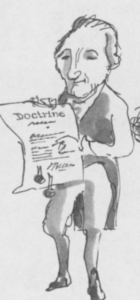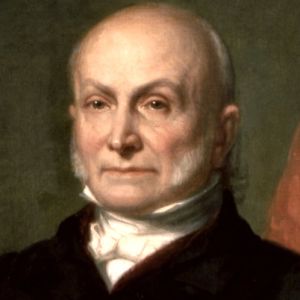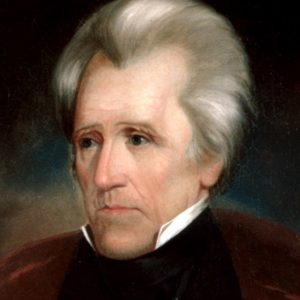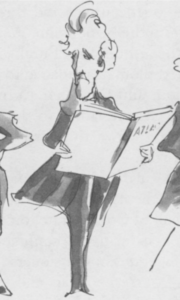Following the War of 1812, what was the key factor behind rising US strength in global affairs?
Chapter 4: “Leave the Rest to Us”: The Assertive Republic, 1815-1837
“The War of 1812 gave a tremendous boost to nationalism. Americans entered the postwar era more optimistic than ever. Their faith in themselves and their nation’s destiny knew few bounds. Their boastful pride in their own institutions often annoyed visitors. ‘A foreigner will gladly agree to praise much in their country,’ the perceptive Frenchman Alexis de Tocqueville complained, ‘but he would like to be allowed to criticize something and that he is absolutely refused.’ ‘I love national glory,’ one congressman exulted. American horizons broadened. Even the optimistic Jefferson could envision nothing more than a series of independent republics in North America. His successor as the architect of U.S. expansion, John Quincy Adams, foresaw a single nation stretching from Atlantic to Pacific. As secretary of state and president he worked tirelessly to realize this destiny.”
–George C. Herring, From Colony to Superpower: U.S. Foreign Relations Since 1776 (New York: Oxford University Press, 2008), 138.
KEY TERMS & FIGURES: Monroe Doctrine (1823) // John Quincy Adams // Andrew Jackson // Henry Clay
KEY FIGURES
KEY TERMS: Monroe Doctrine (1823)
 “The Monroe ‘doctrine’ was by no means a hollow statement. It neatly encapsulated and gave public expression to goals Monroe and Adams had pursued aggressively since 1817. That it was issued at all reflected America’s ambitions in the Pacific Northwest and its renewed concerns for its security. That it was done separately from Britain reflected the nation’s keen interest in acquiring Texas and Cuba and its commercial aspirations in Latin America. It expressed the spirit of the age and provided a ringing, if still premature, statement of U.S. preeminence in the hemisphere. It publicly reaffirmed the continental vision Adams had already privately shared with the British and Russians: ‘Keep what is yours but leave the rest of the continent to us.'” –George Herring, From Colony to Superpower, p. 157
“The Monroe ‘doctrine’ was by no means a hollow statement. It neatly encapsulated and gave public expression to goals Monroe and Adams had pursued aggressively since 1817. That it was issued at all reflected America’s ambitions in the Pacific Northwest and its renewed concerns for its security. That it was done separately from Britain reflected the nation’s keen interest in acquiring Texas and Cuba and its commercial aspirations in Latin America. It expressed the spirit of the age and provided a ringing, if still premature, statement of U.S. preeminence in the hemisphere. It publicly reaffirmed the continental vision Adams had already privately shared with the British and Russians: ‘Keep what is yours but leave the rest of the continent to us.'” –George Herring, From Colony to Superpower, p. 157
Discussion Questions
- It was Secretary of State John Quincy Adams who played the critical role in formulating what is now known as the Monroe Doctrine. What were Adams’s key diplomatic and strategic goals while he served Monroe and then as he led the nation during his own one-term presidency that defined what Herring labels above as “the spirit of the age”? How central was the Monroe Doctrine to these goals?
- Andrew Jackson succeeded Adams as president in 1829, but he been influential in shaping American strategic policy since 1814. Did the Jackson presidency thus simply continue the earlier expansionism of the Jeffersonians? How central was defending the Monroe Doctrine among the priorities of the Jackson administration?
Additional Resources
- Monroe Doctrine (1823) (National Archives)





